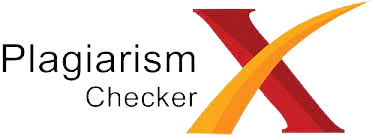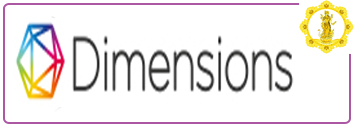PENERAPAN PENDEKATAN STUDENT CENTERED LEARNING (SCL) PADA PEMBELAJARAN PENDIDIKAN AGAMA HINDU DAN BUDI PEKERTI DI SEKOLAH DASAR NEGERI 22 DAUH PURI DENPASAR
DOI:
https://doi.org/10.25078/japam.v3i02.2719Kata Kunci:
Student Centered Learning (SCL), Hindu Religious and Moral Education, Elementary SchoolAbstrak
ABSTRAK
Seiring dengan perkembangan jaman yang diikuti dengan perkembangan teknologinya yang semakin canggih maka proses pembelajaran sudah seharusnya menggunakan pendekatan yang lebih baik. Siswa harus lebih aktif tampil dan berbicara serta meninggalkan karakter sebagai penonton yang pasif. Karenanya, pendekatan pendidikan Student Centered Learning (SCL) dimunculkan dalam mengatasi kepasifan peserta didik, terutama dalam proses pembelajaran agama Hindu dan budi pekerti. Dalam hal ini, Guru Agama Hindu dan Budi Pekerti memegang peranan penting sebagai mediator dalam memfasilitasi implementasi metode Student Centered Learning (SCL) kepada siswa, dengan menciptakan inovasi-inovasi kreatif dalam membangkitkan respon aktif dari siswa itu sendiri.
Tiga permasalahan yang diangkat dalam penelitian ini: implementasi pendekatan Student Centered Learning (SCL), kendala dan upaya penerapan pendekatan Student Centered Learning (SCL), dan implikasi penerapan pendekatan Student Centered Learning (SCL) pada pembelajaran pendidikan agama Hindu dan Budi Pekerti. Teori yang digunakan untuk membedah permasalahan dalam penelitian ini adalah: (1) Teori Konstruktivisme (Jean Piaget), dan (2) Teori Kognitif (Jean Piaget). Jenis penelitian ini adalah penelitian kualitatif dengan pendekatan psikologi. Data yang diperoleh, dikumpulkan dengan teknik wawancara, studi kepustakaan dan dokumentasi. Data yang telah terkumpul kemudian dianalisis dengan teknik deskriptif kualitatif.
Hasil penelitian ini menunjukkan bahwa Implementasi pendekatan Student Centered Learning (SCL) pada pembelajaran agama Hindu dan Budi Pekerti di Sekolah Dasar Negeri 22 Dauh Puri Denpasar dilakukan dalam 9 (sembilan) metode diantaranya; Small Group Discussion (SGD), Role-Play and Simulation, Discovery Learning, Self-Directed Learning, Cooperative Learning, Contextual Learning (CL), Problem Based Learning (PBL), Collaborative Learning (CbL), dan Project Based Learning (PjBL). Terkait kendala dan upaya penerapan pendekatan Student Centered Learning (SCL) terdapat dalam 3 aspek krusial, diantaranya; pada Kemampuan Guru, Kemampuan Siswa, dan kualitas sarana dan prasarana akademik. Sedangkan implikasi penerapan pendekatan Student Centered Learning (SCL) pada pembelajaran pendidikan agama Hindu dan Budi Pekerti terlihat pada 3 (tiga) aspek mendasar, yaitu Implikasi Kognitif, Implikasi Afektif dan Implikasi Psikomotor.
Kata Kunci: Student Centered Learning (SCL), Pendidikan Agama Hindu dan Budi Pekerti, Sekolah Dasar
Referensi
Alma, B. (2009). Guru Profesional Menguasai Metode dan Terampil Mengajar. Alfabeta.
Arikunto, S., & Lia Yuliana. (2008). Manajemen Pendidikan. Ditya Media.
Asrul. (2015). Evaluasi Pembelajaran. Citapustaka Media.
Barkley, E. E., K Patricia Cross, & Clarie Howell Major. (2014). Collaborative Learning Techniques. Nusa Media.
Darmadi, H. (2010). Kemampuan Dasar Mengajar. Alfabeta.
Daryanto. (2014). Pendekatan Pembelajaran Saintifik Kurikulum 2013. Penerbit Gava Media.
Djamarah, S. . (2008). Strategi Belajar Mengajar. Rineka Cipta.
Fuad, M. N. (2016). Manajemen Sarana dan Prasarana Pendidikan: Konsep dan Aplikasinya. PT. RajaGrafindo Persada.
Huda, M. (2013). Cooperative Learning. Pustaka Pelajar.
Hung, W. (2008). The 9-step problem design process for problem-based learning: Application of the 3C3R model. Educational Research Review 4 Tahun 2009, 118–141.
J. E. Mirza Simatupang, & Akmal, M. El. (2019). Kemandirian belajar ditinjau dari kepercayaan diri. Persona: Jurnal Psikologi Indonesia, 8, 208–223.
Johnson, D. R. T. (1999). “Learning Together”, dalam Shlomo, Sharan (ed.), Handbook of Cooperative Learning Methods. Praeger.
Kementrian Agama Republik Indonesia. (2021). Pentingnya Tarkavada Bagi Generasi Muda Hindu. Diakses. Pada 17 Mei 2023. https: https://kemenag.go.id/hindu/pentingnya-tarkavada-bagi-generasi-muda-hindu-u1xd9g
Komalasari, K. (2011). Pembelajaran Kontekstual. Refika Aditama.
Mulyasa. (2004). Implementasi Kurikulum 2004: Panduan Pembelajaran KBK. Rosdakarya.
Mulyasa. (2010). Menjadi Guru Profesional (Menciptakan Pembelajaran Kreatif dan Menyenangkan) Cetakan kesembilan. Remaja Rosda Karya.
Mulyasa. (2014). Pengembangan dan Implementasi Kurikulum 2013. Remaja Rosda Karya.
Murtiningsih, S. (2004). Pendidikan Alat Perlawanan, Teori Pendidikan Radikal Paulo Freire. Yogyakarta: Resist Boook.
Pribadi, B. A. (2014). Desain dan Pengembangan Program Pelatihan Berbasis Kompetensi: Implementasi Model Addie. Kencana.
Robbins, S. ., & Judge T.A. (2015). Perilaku Organisasi-Organizational Behavior. Salemba Empat.
Setiawati, L. (2016). Implementasi Role Playing Dalam Meningkatkan Hasil Belajar. Pedagogia: Jurnal Ilmu Pendidikan, 14, 318–332.
Soetjipto, & Raflis Kosasi. (2009). Profesi Keguruan. Rineka Cipta.
Soyomukti, N. (2010). Teori-Teori Pendidikan. Yogyakarta: Ar-Ruzz Media.
Sumada, I. N. (2020). Implementasi Tri Kaya Parisudha Dalam Pendidikan Karakter Siswa Sd Negeri 8 Ban Kecamatan Kubu, Kabupaten Karangasem. Jurnal Vidya Wertta, 3, 83–91.
Syah, M. (2011). Psikologi Pendidikan Dengan Pendekatan Baru. PT. Remaja Rosda Karya.
Teaching Excellent in Adult Literacy. (2010). Student Centered Learning. Sacramento: American Institutes for Research.
Titib, I. M. (2006). Menumbuhkembangkan Pendidikan Budhi Pekerti Pada Anak Dalam Perspektif Agama Hindu. Ganeca Excat.
Trisnaningrat, M. A. N. (2019). Inovasi Pembelajaran Student Centered Learning Dalam Pendidikan Agama Hindu. Prosiding Seminar Nasional Dharma Acarya ke-1. Vol 1 No. 3. Hlm 385-392.
Uno, H. B. (2009). Model Pembelajaran. Bumi Aksara.
Wehmeier, S. (2000). Oxford Advanced Learner’s Dictionary. Oxford University Press.
Yusuf, S. L. . & N. M. S. (2011). Perkembangan Peserta Didik: Mata Kuliah Dasar Profesi (MKDP) Bagi Para Mahasiswa Calon Guru di Lembaga Pendidikan Tenaga Kependidikan (LPTK). Grafindo Persada.








